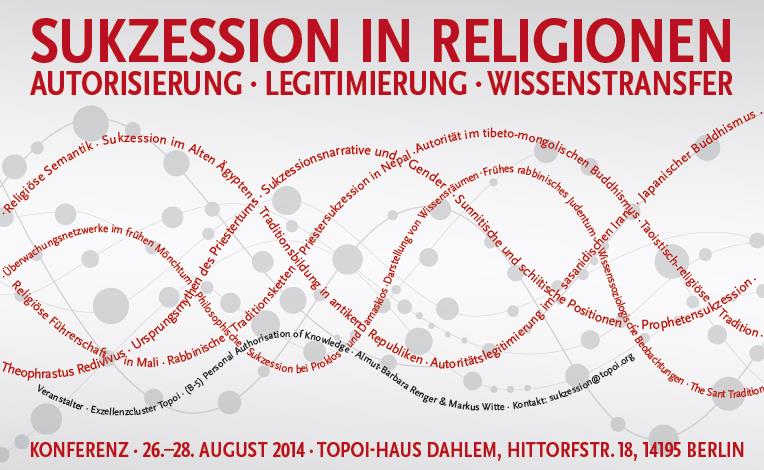This project has investigated issues of succession in various cultural and religious contexts of the ancient Mediterranean and neighboring areas. In particular, it was examined how narratives of succession and/or genealogy served to create and stabilize collective identities, and how attempts were made to demarcate these from other sources of knowledge authorities and traditions.
Research
Succession as a way of passing on authority designed to provide continuity and stability is a classic example of personal authorization. In ancient depictions of chains of personal authority, a historical sequence of master/teacher-disciple/student relations, schools and communities is created by linking together lives which contain references to relations between experts and knowledge bearers including philosophers, orators, scholars and religious specialists. As is typical of ancient genealogical and succession narratives, these constructions of authority chains and knowledge networks are connected with a wealth of myths, legends and anecdotes that serve identificatory purposes: They construct history by establishing and preserving images and further representations of the past with which the members (individuals, groups, generations) identify.
This project has addressed the question of how genealogy and succession based on concepts of religious import and narratives such as myths, legends and anecdotes produced and stabilized collective identities, while simultaneously both associating them with and delimiting them from other knowledge authorities and traditions.
Knowledge Transfer

International conference held by research project (B-5-1) on the notion of personal autority within ancient discourses of religion and science.
Contributing to and profiting from Topoi’s unmitigated capacity to carry out research with scholars and academic institutions from around the world, national and international contacts were initiated at an early stage in order to expand the projects perspectives. A key partner in this approach has become the Faculty of History at the University of Oxford with which a closing event of the project was organized in Winter Semester 2016/17. In accordance with the research partner’s profile, research was conducted into how notions and narratives of succession interpreted, normalized and legitimized existing synchronic and diachronic structure-giving relations by constructing temporal continuity. In particular, the question was raised how these notions and narratives anchored individuals and groups in space, integrated the times and places of their effects into a network of reciprocal time and space references, generated a past-oriented reference to spatial presence, and depicted the real or imagined transfer of knowledge, and hence the transmission of authority.
Scholarly Events
Various scholarly events served to explore these issues by bringing scholars of Religious and Ancient Mediterranean Studies into sustained dialogue on the interrelations between space, knowledge, authority and succession. In 2014 and 2015 a series of carefully prepared workshops, meetings and lectures were held together with members of the research projects (B-5-5) Basic structures of Jewish genealogies in Hellenistic times and (B-5-2) Personal and nonpersonal authority in ancient Greek theoretical knowledge, in order to communicate research results both to the scientific community and the broad public (for details see the event page of research group B-5). With the media and the wider public showing a vivid interest in the issue, these scholarly events provided a forum for both established and aspiring young scholars, to assess the current state of the art in their academic fields and to identify where existing approaches of their own and neighboring disciplines can be applied. Last not least future research challenges were explored pertaining to global cutting edge topics such the interpenetration of succession and entitlement to office bound up in the person of its holder, or the interrelation of genealogy and genetics. The comparative approach of the project with testimonies ranging from ca. 500 BC to 500 AD., involved discourses and narratives, methodologies and technologies not only of Religious Studies, but also of Theology, Ancient History, Greek and Latin Studies, Iranian Studies, Indology and East Asian as well as Cultural Studies and Social Thought. In particular, papers and discussions were concerned with the issues of authorization and legitimation of (sacred) texts, religious experts, holy places, ethics and societal organization in cultural systems of behaviors, practices and world views that relate humanity to an order of existence.
Results
Proceedings of the events organized with project B-5-5 on the issue of “Succession in Religion” was published as a single volume with De Gruyter in summer 2017 (co-edited with Markus Witte):
For further publications, see:

